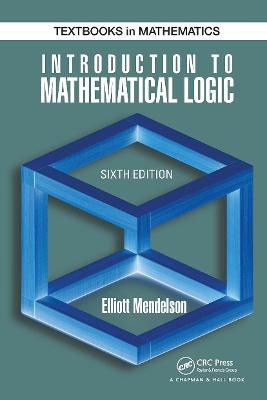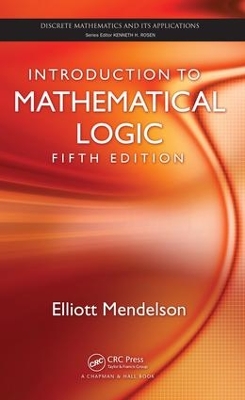Discrete Mathematics and Its Applications
4 total works
Introduction to Mathematical Logic includes:
The study of mathematical logic, axiomatic set theory, and computability theory provides an understanding of the fundamental assumptions and proof techniques that form basis of mathematics. Logic and computability theory have also become indispensable tools in theoretical computer science, including artificial intelligence. Introduction to Mathematical Logic covers these topics in a clear, reader-friendly style that will be valued by anyone working in computer science as well as lecturers and researchers in mathematics, philosophy, and related fields.
The new edition of this classic textbook, Introduction to Mathematical Logic, Sixth Edition explores the principal topics of mathematical logic. It covers propositional logic, first-order logic, first-order number theory, axiomatic set theory, and the theory of computability. The text also discusses the major results of Goedel, Church, Kleene, Rosser, and Turing.
The sixth edition incorporates recent work on Goedel's second incompleteness theorem as well as restoring an appendix on consistency proofs for first-order arithmetic. This appendix last appeared in the first edition. It is offered in the new edition for historical considerations. The text also offers historical perspectives and many new exercises of varying difficulty, which motivate and lead students to an in-depth, practical understanding of the material.
Retaining all the key features of the previous editions, Introduction to Mathematical Logic, Fifth Edition explores the principal topics of mathematical logic. It covers propositional logic, first-order logic, first-order number theory, axiomatic set theory, and the theory of computability. The text also discusses the major results of Goedel, Church, Kleene, Rosser, and Turing.
New to the Fifth Edition
- A new section covering basic ideas and results about nonstandard models of number theory
- A second appendix that introduces modal propositional logic
- An expanded bibliography
- Additional exercises and selected answers
This long-established text continues to expose students to natural proofs and set-theoretic methods. Only requiring some experience in abstract mathematical thinking, it offers enough material for either a one- or two-semester course on mathematical logic.


